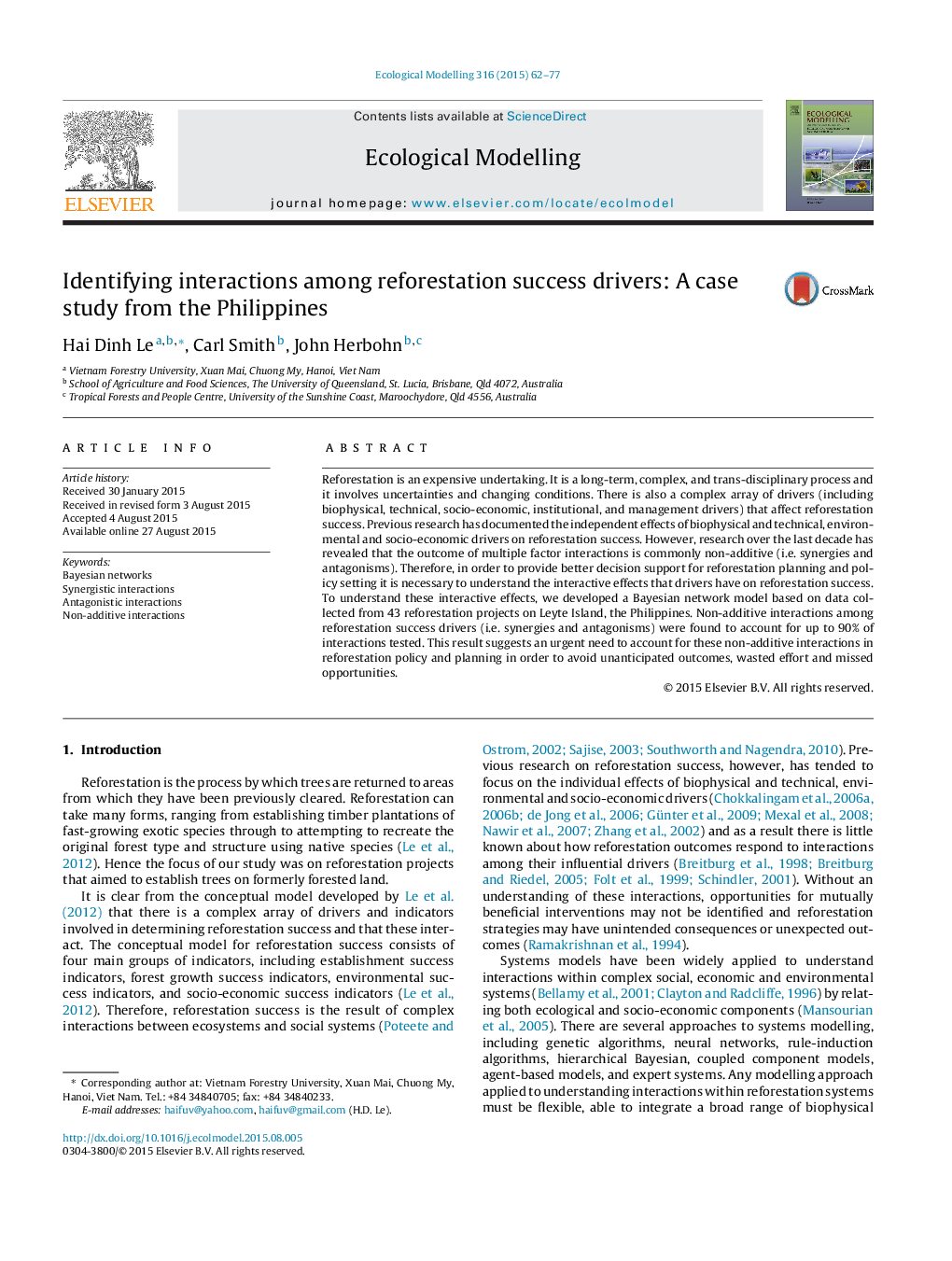| Article ID | Journal | Published Year | Pages | File Type |
|---|---|---|---|---|
| 6296450 | Ecological Modelling | 2015 | 16 Pages |
Abstract
Reforestation is an expensive undertaking. It is a long-term, complex, and trans-disciplinary process and it involves uncertainties and changing conditions. There is also a complex array of drivers (including biophysical, technical, socio-economic, institutional, and management drivers) that affect reforestation success. Previous research has documented the independent effects of biophysical and technical, environmental and socio-economic drivers on reforestation success. However, research over the last decade has revealed that the outcome of multiple factor interactions is commonly non-additive (i.e. synergies and antagonisms). Therefore, in order to provide better decision support for reforestation planning and policy setting it is necessary to understand the interactive effects that drivers have on reforestation success. To understand these interactive effects, we developed a Bayesian network model based on data collected from 43 reforestation projects on Leyte Island, the Philippines. Non-additive interactions among reforestation success drivers (i.e. synergies and antagonisms) were found to account for up to 90% of interactions tested. This result suggests an urgent need to account for these non-additive interactions in reforestation policy and planning in order to avoid unanticipated outcomes, wasted effort and missed opportunities.
Related Topics
Life Sciences
Agricultural and Biological Sciences
Ecology, Evolution, Behavior and Systematics
Authors
Hai Dinh Le, Carl Smith, John Herbohn,
